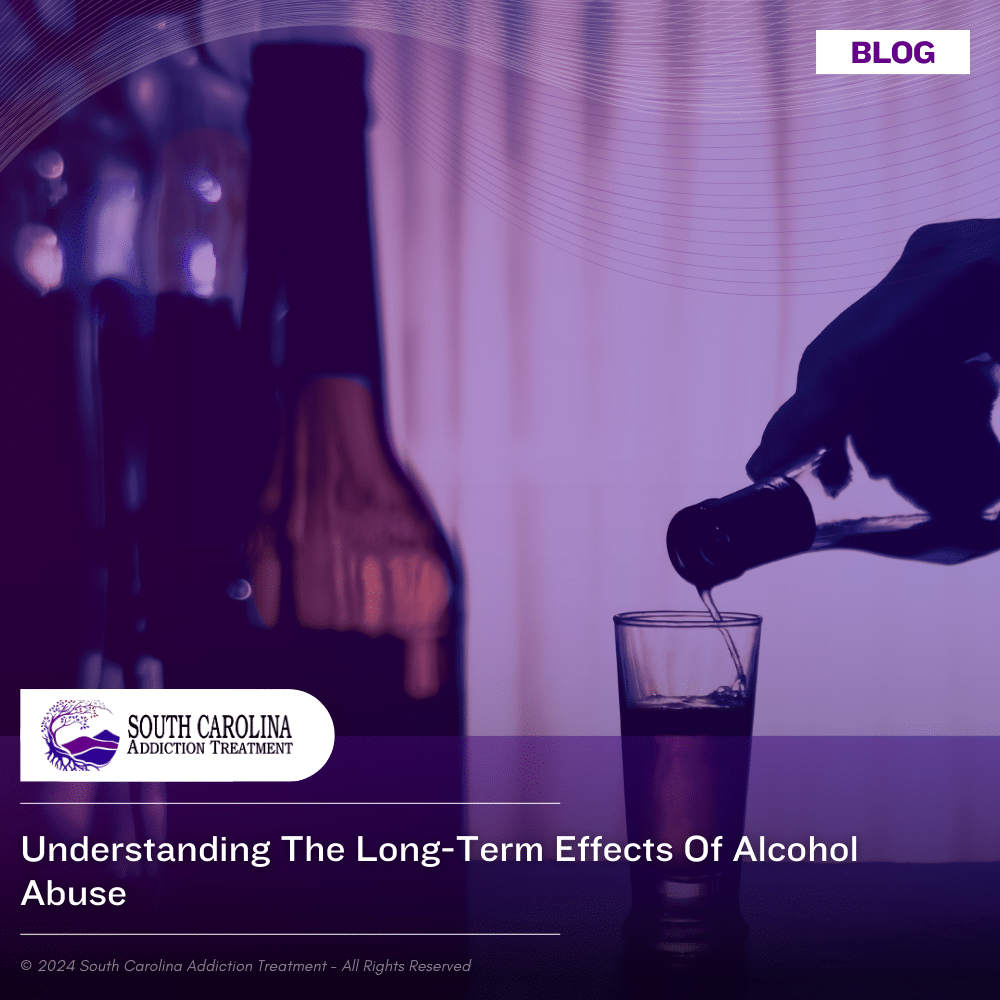Understanding the Long-Term Effects of Alcohol Abuse

Medically Verified: 2/1/24
Medical Reviewer
Chief Editor

All of the information on this page has been reviewed and verified by a certified addiction professional.
Alcohol is the most commonly used drug in America. According to the National Institute on Alcohol Abuse and Alcoholism (NIAAA), “85.6 percent of people ages 18 and older reported that they drank alcohol at some point in their lifetime.”[1] While it is possible to drink alcohol in moderation, many people engage in excessive alcohol use, leading to dependency and addiction.
There are other consequences of excessive drinking to consider. Aside from developing alcoholism, alcohol abuse can lead to a variety of long-term health effects. From injuries and alcohol poisoning to liver disease and even certain cancers, alcohol abuse can significantly impact your overall well-being.
Being aware of the long-term effects of alcohol abuse can motivate you to seek the help you need before you begin to experience the health consequences.
How Much Alcohol is Considered Too Much?
According to the CDC, “Excessive drinking includes binge drinking, heavy drinking, and any drinking by pregnant women or people younger than age 21.”[2]
Binge drinking is the most common form of alcohol abuse. This type of drinking is characterized by consuming an excessive amount of alcohol in a short period. Binge drinking is defined as having 4 or more drinks on one occasion for women, and 5 or more drinks at once for men.
Heavy drinking is characterized by drinking excessively over a week. For women, heavy drinking is defined as having more than 8 drinks in one week. Men are considered to be heavy drinkers if they consume more than 15 alcoholic beverages in a week.
While binge drinkers and heavy drinkers are not considered to be alcoholics, they are at an increased risk of developing an alcohol use disorder. Additionally, their drinking habits put them at risk of experiencing long-term health effects of alcohol abuse.
The Short-Term Health Risks of Alcohol Abuse
It is a common misconception that heavy alcohol use only affects you in the long term.
If you or a loved one abuse alcohol, there are some health risks that you could experience early on. Typically, binge drinking is associated with the short-term health risks of alcohol misuse.
If you currently abuse alcohol, you are at risk of developing these short-term health risks:
- Alcohol-related injuries such as motor vehicle accidents, falls, drownings, and burns
- Violence, including homicide, suicide, sexual assault, and domestic violence
- Alcohol poisoning
- Risky sexual behaviors such as having unprotected sex or sex with multiple partners
- Pregnancy-related issues as a result of alcohol misuse, such as miscarriage, stillbirth, or fetal alcohol spectrum disorders (FASDs)
Unfortunately, many people engage in binge drinking behaviors. According to the National Institute on Alcohol Abuse and Alcoholism (NIAAA), “In 2019, 25.8 percent of people ages 18 and older reported that they engaged in binge drinking in the past month.”[1]
One of the main short-term risks of binge drinking is alcohol poisoning or an overdose. This occurs when there is too much alcohol present in your bloodstream. Alcohol poisoning can lead to the shutting down of vital life support functions, such as breathing, heart rate, and temperature control.[3]
What are the Long-Term Effects of Alcohol Abuse?
If you continue to abuse alcohol in a problematic manner, you could develop an array of various chronic diseases and other serious medical problems. Alcohol affects nearly every organ in your body. When you are abusing the substance for a long time, various systems and organs in your body will begin to deteriorate.
Some of the most common long-term effects of excessive alcohol abuse include:
- High blood pressure
- Heart disease
- Stroke
- Liver disease
- Digestive problems
- Various cancers, including the breast, mouth, throat, esophagus, voice box, liver, colon, and rectum
- Weakened immune system
- Learning and memory issues, including dementia
- Increased mental health problems such as depression and anxiety
- Social issues like family problems, work-related issues, and unemployment
- Dependency, withdrawal, and alcoholism
Many of these consequences can be life-threatening, and more than 95,000 people die as a result of alcohol-related causes annually.[4]
Some of the long-term effects of alcoholism are irreversible, requiring extensive medical treatment and in some cases, long-term care. Because of this, you must address your alcoholism before it’s too late. Licensed alcohol rehab centers can provide you with the tools and support you need to overcome your addiction and regain control of your life.
Get Connected to a Top-Rated Alcohol Rehab Program
The short and long-term effects of alcohol abuse and alcoholism can be devastating, but help is available. At South Carolina Addiction Treatment, we can provide you with the support, comfort, and medical treatment that you deserve. Our comprehensive alcohol rehab center in South Carolina features medical detoxification, multiple levels of care, and support groups that can help you on your recovery journey.
If you would like to quit drinking and begin a new way of life, call us today to get help for alcohol addiction.
References:
- https://www.niaaa.nih.gov/publications/brochures-and-fact-sheets/alcohol-facts-and-statistics
- https://www.cdc.gov/alcohol/fact-sheets/alcohol-use.htm
- https://www.ddap.pa.gov/overdose/Pages/Alcohol-Poisoning-Overdose.aspx
- https://www.niaaa.nih.gov/publications/brochures-and-fact-sheets/alcohol-facts-and-statistics

